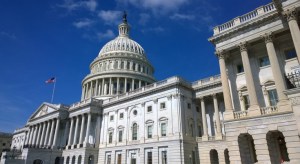WASHINGTON, D.C. — U.S. Senator John Fetterman(D-PA) has once more expressed his backing for a legislative initiative designed to limit corporate exploitation during economic turmoil. Last week, Fetterman co-sponsored the2025 Price Manipulation Prevention Acta broad initiative aimed at enabling federal and state authorities to examine and take legal action against businesses alleged to have taken advantage of market volatility to support excessive price hikes.
Under the leadership of Senators Elizabeth Warren (D-MA) and Tammy Baldwin (D-WI), the bill focuses on major companies that, as its supporters claim, have utilized factors like inflation and unpredictable trade policies—such as former President Donald Trump’s tariff actions—to conceal exploitative price increases. The law presents itself as a national response to what numerous legislators and activist organizations assert is a widespread misuse of consumer confidence.
Trump’s unpredictable tariff policies gave big companies a way to increase prices on the goods and services we use daily,” said Fetterman, describing the former president’s trade choices as an opportunity for corporate abuse. “ThePrice Gouging Prevention Actempowers regulators to close this down. It compels large corporations to be transparent about their reasons for increasing prices, and it will provide relief at the grocery store and gas pump for families throughout the Commonwealth.
The legislation, also backed by Representative Chris Deluzio (D-PA-17) and others in the House, aims to officially recognize price gouging as a deceptive act under the Federal Trade Commission (FTC) Act. It grants federal power to examine and impose penalties for “excessively high” pricing, especially during times of market instability, like sudden shifts in trade policies.
Provisions include:
- A countrywide ban on excessive pricing, with the FTC and state attorneys general given the power to enforce it.
- Standards for recognizing potential breaches during occurrences like major changes in trade regulations.
- Legal safeguards for small businesses with revenues below $100 million, enabling them to increase prices in good faith during emergencies.
- Required openness for publicly traded companies, mandating thorough expense and rate reporting in SEC documents throughout financial crises.
- A $1 billion rise in financial support for the FTC to enhance investigative activities.
The proposal is becoming more popular with progressive legislators who see corporate pricing methods as a key factor in the country’s affordability issue. Advocates claim that big corporations have taken advantage of the inflation situation and unclear policies not only to maintain their profit levels, but to significantly increase earnings while consumers experience greater difficulties.
Senator Baldwin stated, “Donald Trump asserted he would reduce costs – thus far, he has accomplished the reverse and is even allowing more instances of excessive pricing. Our legislation aims to effectively address corporate greed.”
Rep. Schakowsky (D-IL-9) stated, “Selfish companies are taking advantage of the financial instability caused by the Trump administration to charge Americans more for items like groceries and everyday products.”
The legislation has received support from a broad range of labor and consumer protection groups, such as the AFL-CIO, United Steelworkers, American Economic Liberties Project, and the Consumer Federation of America. These groups claim that uncontrolled pricing authority by major companies is a key reason for ongoing high prices on necessary items.
Working families should never be pressured by corporations that use crises as a reason to increase prices,” stated United Steelworkers President David McCall, while AFL-CIO President Liz Shuler highlighted the bill as a means to “restore some reasonable fairness to our economy.
Nevertheless, the law faces opposition. Although not directly mentioned in the statement, critics of comparable bills have previously expressed concerns that federal price regulations and anti-gouging laws could reduce manufacturing, interfere with distribution networks, or be exploited for political purposes to target unwanted sectors.
Nevertheless, despite inflation remaining a major issue for voters and families struggling with rising expenses on groceries, gas, and housing, support for consumer protection policies is gaining strength.
Whether the Act to Prevent Price Gouging in 2025It is uncertain whether the proposal will gain support from both political parties in a polarized Congress. However, for legislators such as Fetterman, the message is evident: corporate pricing practices, especially during emergencies, are now subject to federal examination.







